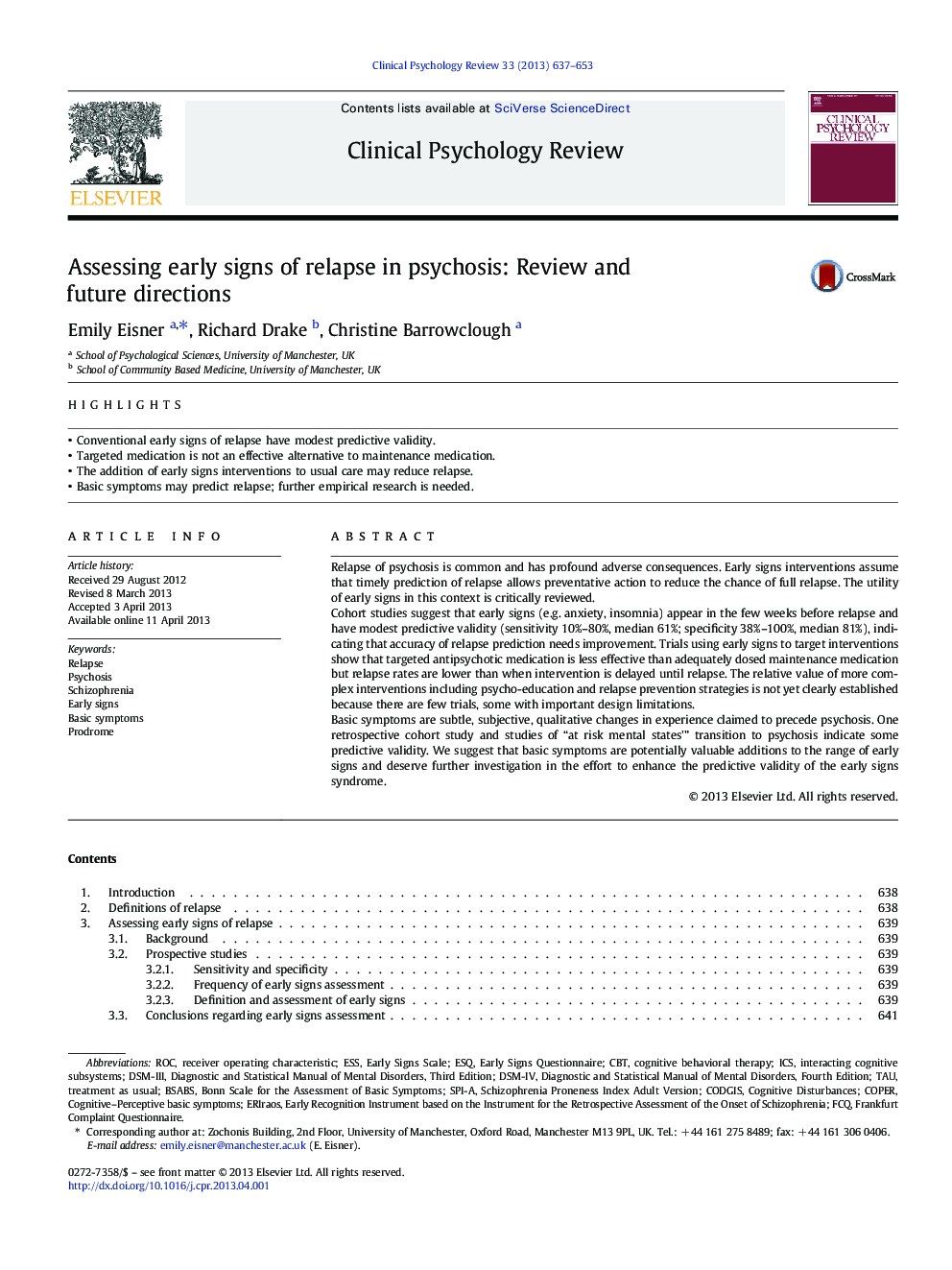| Article ID | Journal | Published Year | Pages | File Type |
|---|---|---|---|---|
| 903634 | Clinical Psychology Review | 2013 | 17 Pages |
•Conventional early signs of relapse have modest predictive validity.•Targeted medication is not an effective alternative to maintenance medication.•The addition of early signs interventions to usual care may reduce relapse.•Basic symptoms may predict relapse; further empirical research is needed.
Relapse of psychosis is common and has profound adverse consequences. Early signs interventions assume that timely prediction of relapse allows preventative action to reduce the chance of full relapse. The utility of early signs in this context is critically reviewed.Cohort studies suggest that early signs (e.g. anxiety, insomnia) appear in the few weeks before relapse and have modest predictive validity (sensitivity 10%–80%, median 61%; specificity 38%–100%, median 81%), indicating that accuracy of relapse prediction needs improvement. Trials using early signs to target interventions show that targeted antipsychotic medication is less effective than adequately dosed maintenance medication but relapse rates are lower than when intervention is delayed until relapse. The relative value of more complex interventions including psycho-education and relapse prevention strategies is not yet clearly established because there are few trials, some with important design limitations.Basic symptoms are subtle, subjective, qualitative changes in experience claimed to precede psychosis. One retrospective cohort study and studies of “at risk mental states'” transition to psychosis indicate some predictive validity. We suggest that basic symptoms are potentially valuable additions to the range of early signs and deserve further investigation in the effort to enhance the predictive validity of the early signs syndrome.
